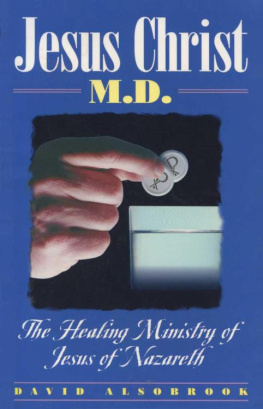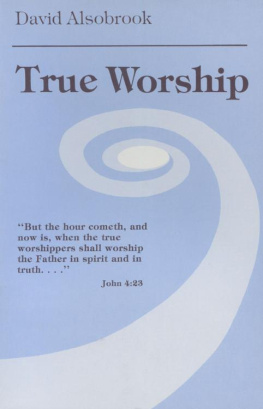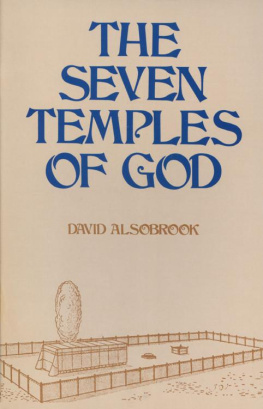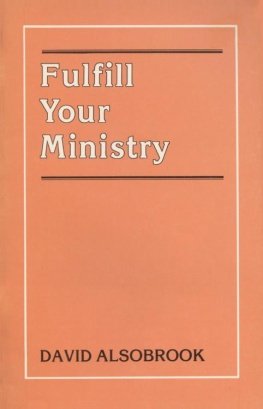God Cannot Lie!!!
A study on the infallible integrity of God's Word and the importance of knowing the Word.
by David Alsobrook
Table of Contents
Part 1 The Infallible Integrity of God's Word
My Promise Will I Not Break
God Cannot Lie
Forever Settled
Precious Promises
Is Any Part of God's Word Impure?
Is God's Word Ever Wrong?
Can God's Word Be Bound?
Thirdly Teachers, After That Miracles
Magnified Thy Word
Part 2 The Importance of Knowing God's Word
Lack of Knowledge
Strength Comes From the Indwelling Word
Thy Word Have I Hid In Mine Heart
Separated By The Word
Treasure God's Word!!!
Believer or Disciple?
Attend to My Words
Study Tips For Learning the Word
Hear the Word
Read the Word
Study the Word
Meditate in the Word
Confess the Word
Do the Word
About the Author
"That by two immutable things, in which it was impossible for God to lie, we might have a strong consolation who have fled for refuge to lay hold upon the hope set before us" (Hebrews 6:18).
PART ONE:
The Infallible Integrity of God's Word
My Promise Will I Not Break
The main reason we are not quick to act on the Word is due to the fact we doubt the validity of the Scripture for us today. We doubt whether or not God will really do for us what He said He will do when we are confronted with real-life problems. If someone walks up to us and asks, "Do you believe everything in the Word of God?" We are quick to answer, "I certainly do," although we are sometimes very slow to incorporate the Lord's teaching in our lives.
How very easy it is to hear a beautiful teaching in a public meeting, or listen to a tape, or read a book, and affirm the truth of it mentally. Yet when taken from the realm of theory and put into the area of daily living, how much different it looks! This is the point where most believers make excuses for their unbelief.
The trial of our faith wars against the subtle impressions of the enemy. We can cast down imaginations and every high thing in our mind which exalts itself against the knowledge of God in our heart by swinging the sword of the Spirit, which is the Word of God (see 2 Cor. 10:4-5; Eph. 6:17).
The battle would be over much more quickly if we could believe with our hearts in the full integrity of God's Word. We now proceed to give scriptures that show us how infallible the Word of God really is.
"My covenant will I not break, nor alter the thing that is gone out of My lips" (Psalm 89:34).
"In hope of eternal life, which God, that cannot lie, promised before the world began" (Titus 1:2).
"God is not a man, that He should lie; neither the son of man that He should repent: hath He said, and shall He not do it? or hath He spoken, and shall He not make it good?" (Num. 23:19).
In Psalm 89:34, covenant refers to promise. God is saying, "My promise will I not break ..." Alter means to change. "Nor change the thing that is gone out of My lips." This means that God will never change what He has already said in His Word.
God will not break His promises, He will always keep His word.
God Cannot Lie
In Titus 1:2 we see that "God cannot lie." Men can. God can't.
We usually say God can do anything/everything. There are some things, however, which God cannot do. God cannot lie; God cannot fail; God cannot err.
Usually Christians think, "Why surely this is true in here, for God is too good to lie." In actual fact, they are saying God can lie, but He won't. In actual truth, however, God won't lie, because He can't.
God cannot even be tempted by evil! (see James 1:13).
This brings us to Numbers 23:19: God cannot lie, even though men can, because " GOD IS NOT A MAN.... Think about that for a while, will you? God is not a man. A man is not God. God is not a man. This shows us why we are so incompatible with Him much of the time.
To say God will not lie and leave it at that, is to imply He can lie, but due to His goodness He will not. To say what is written, "GOD CANNOT LIE," is to say, "... that God is light, and in Him is no darkness at all' (1 John 1:5).
God is not a man, that He should lie; men lie, but God is not a man that He should.
Someone says, "True, God will not lie, but that does not mean He cannot change His mind. After all, we all change our minds about things." NO! again, "God is not a man, that He should lie, NEITHER THE SON OF MAN THAT HE SHOULD REPENT ..." Do you know what the word repent here means? It means: to change one's mind. God, therefore, is not a man that He should lie, neither the son of man that He should change His mind. Instead of questioning as Balaam did," ... hath He said, and shall He not do it? or hath he spoken, and shall He not make it good?" Let's confess and say with our mouths, "HE HATH SAID, AND HE SHALL DO IT! HE HATH SPOKEN, AND HE SHALL MAKE IT GOOD!!!''
Forever Settled
God's Word cannot be changed or altered for another reason.
In Psalm 119:9 the psalmist is pondering the infallibility of the Lord's testimonies. The Holy Spirit quickens him (see verse 88) so that he cries out with exclamation:
"FOREVER, O LORD, THY WORD IS SETTLED IN HEAVEN!''
This means that ages before holy men of God were moved by the Holy Ghost to speak (see 2 Pet. 1:21) God's Word was forever settled. The Throne gave the rule in the ages of eternity before time began. The same Word shall be unchanged when time shall cease and continue the same through endless ages.
"Forever, O Lord, thy Word is settled in Heaven." That which was and is forever settled in Heaven, was communicated to men on earth. The Holy Spirit breathed upon them, inspiring inerrantly the testimony contained in the book commonly called The Holy Bible, making the words written, life and spirit to those who hear them, and health to all their flesh.
If one adds or takes away from the words of The Book, divine judgment shall surely follow (see Rev. 22:18-19). This is why James warns the church, "My brethren, be not many masters (teachers), knowing that we shall receive the greater condemnation (judgment)" (James 3:1). In accord with this, Jesus solemnly says, "Whosoever therefore shall break one of these least commandments, and shall teach men so, he shall be called the least in the kingdom of heaven; but whosoever shall do and teach them, the same shall be called great in the kingdom of heaven" (Matt. 5:19).
A further reason God's Word cannot fail is due to the divine decree that the earth, as well as Heaven, would first have to pass away. The Son of God, our precious Lord Jesus, says:
"Heaven and earth shall pass away, but my words shall not pass away" (Matt. 24:35).
"For verily (truly) I say unto you, Till heaven and earth pass, one jot or one tittle shall in no wise pass from the law, till all be fulfilled." (Matt. 5:18).
To further show by the scriptures the unfailing oath of God forever honored by Heaven, we read in Jeremiah 1:12, "Then said the Lord unto me, Thou hast well seen: for I will hasten My Word to perform it.'"' The marginal translation reads watch over rather than hasten. Either rendering is suitable. The Lord is saying He will be quick to perform His Word wherever anyone claims it as theirs. He is also saying that when we speak and hide His Word, He will watch over what we meditate and speak to perform, or to fulfill, it. This is how we grow in the divine nature.
Precious Promises
We find an area of our lives that does not measure up to the divine nature. We find a promise or provision in the Word that adequately fits our particular need. Then we treasure that scripture by claiming it and praising God, by virtue of His truth and unfailing promise, to make it good in our lives, to perform it perfectly in and through us. This must be Peter's meaning when he speaks by the Holy Spirit:
Next page













